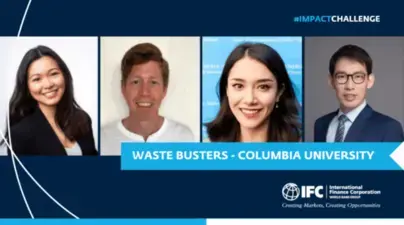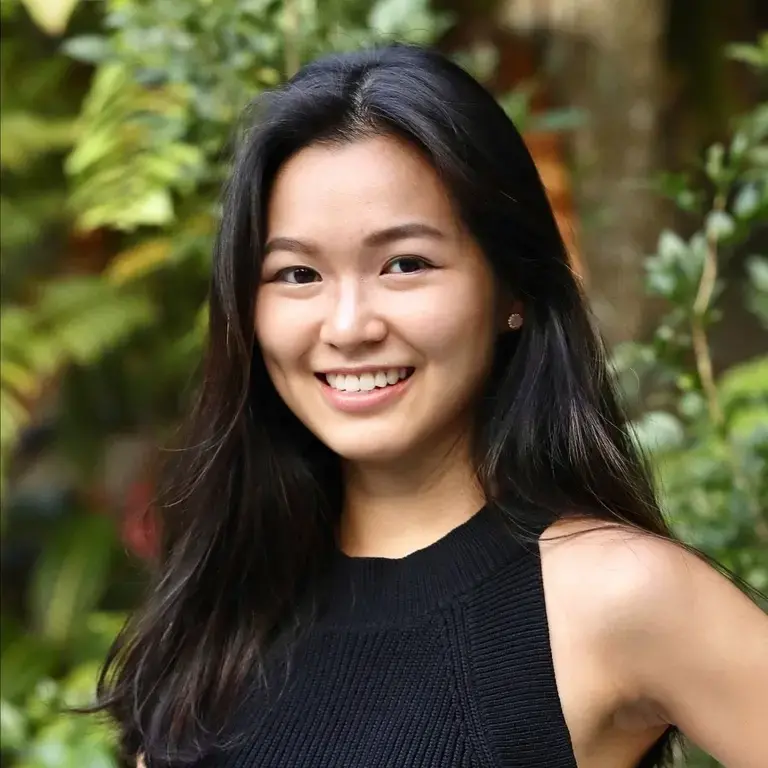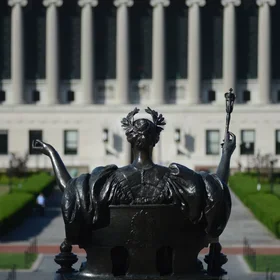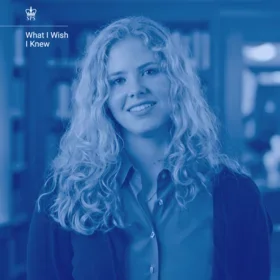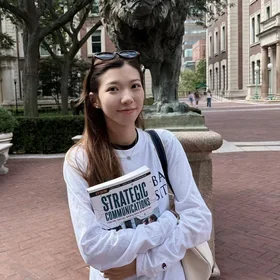The Impact Investing Challenge, hosted by the World Bank International Finance Corporation (IFC), is a flagship competition for graduate students worldwide to compete and collaborate, while showcasing their skills and innovative ideas in the rapidly growing field of impact investing. This year, 180 contestants from twenty-nine universities around the world submitted their proposals. Waste Busters, a Columbia University team formed by members Ying Fam (SPS, Sustainability Management), Tessa Owens (SIPA), Lictor Prianti (SIPA), and Tim Liao (SIPA), was given an award for being one of the top three finalists of the Impact Investing Challenge.
The Waste Busters team pitched an innovative, impact-focused financial product to the IFC. The product was a Sustainable Impact Bond that is valued at $270 million, which would finance the construction of a Waste-to-Energy plant in Indonesia. The project would yield positive climate, energy, health, and other social benefits while being centered around the inclusion of Informal Waste Collectors, a vulnerable group that accounts for around two percent of Indonesia's population.
How does the proposed project improve the health and social benefits of the Indonesian Waste Collectors? What climate and energy benefits would this project accomplish?
The proposal was innovative for its inclusion of the Informal Waste Collectors (IWC) into the value chain. Additionally, it was innovative with its creation of a new sustainable finance product that would be both earmarked to a green project and tied to a pay-for-success model that incentivizes the pursuit of key impact metrics.
IWC inclusion would formalize a waste management system that would result in higher recycling rates, as well as a cleaner and safer working environment for the collectors. Additionally, the waste-to-energy plant could help alleviate energy poverty in Indonesia, where approximately 53 percent of the population is energy-poor. As the world’s third-largest polluter of plastic waste, residents of Indonesia and the world would benefit from the development of proper pathways for the treatment of waste in the country.
How was the experience overall? Can you explain a bit about the process and if you would recommend the challenge to other students?
This challenge is definitely one of the highlights of my experience at Columbia! I learned so much in such a short period of time. And I was working alongside a brilliant team with the support of our knowledgeable professors in both environmental engineering/waste management (Prof. Thanos Bourtsalas) and impact/sustainable finance (Prof. Caroline Flammer, Prof. Bhakti Mirchandani, and Prof. Curtis Probst). The opportunity to present our solutions to top executives at the IFC and engage in discussions regarding an issue I care deeply about was truly invaluable. Our team worked hard and we're really proud, and grateful, to have landed in the Top 3. I highly recommend this challenge to students interested in the intersection of sustainable development and impact investing.”
I loved the experience! It was so great to be able to work with a team of students in other programs, which I don't often have the chance to do. The process involved several rounds. The first round was a submission of our written proposal. After we passed that round, we had to submit an updated proposal and a slide deck and present it among the top twelve teams. Then the top six teams were selected, and we presented again to a different group of executives at the IFC. Finally, when we advanced past this round, we were among the top three teams presenting to a senior team at the IFC with a Vice President. I would recommend the challenge to students in the future, but only if they are prepared to dedicate many hours of work to the project, since the process was quite intense (though worth it!)."
Where are the Waste Busters heading to now?
Tessa graduated from SIPA in May and will then work as a Global Sustainable Finance Fellow at Morgan Stanley over the summer. She hopes to find a job related to climate finance in the future.
Lictor has one more year in SIPA. After that, he hopes to work in a climate finance job.
Ying is graduating from SPS this summer and is looking to pursue roles in corporate sustainability.
Tim graduated from SIPA in May and is currently interviewing for full-time jobs in impact investing funds that focus on early-stage startups. He would like to participate in this emerging space.
Congratulations Waste Busters!
